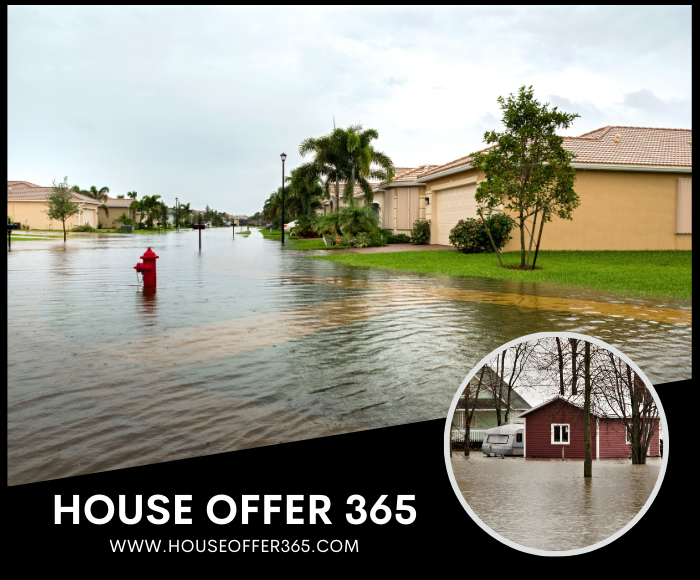Buying a House in a Flood Zone: Understand the Flood Zone Classification. Zone X: Low-risk areas, where flooding is unlikely. Zone AE or A: High-risk flood zones where floods are more common. – Zone V: Coastal areas with increased flood risks, often due to storm surges.
Buying a house is an exciting process, but when it comes to purchasing a home in a flood zone, there are some extra factors you need to consider. 🌧 Flood zones can pose risks, but with the right information and precautions, you can find your dream home while staying safe and protected. 🏠 In this blog post, we’ll break down everything you need to know about buying a home in a flood zone, from insurance to flood-proofing tips, all while keeping those viral real estate keywords in mind! 🚀
- Understand the Flood Zone Classification 🌍:
Before making any decisions, it’s essential to know what type of flood zone the property is located in. 🗺 The Federal Emergency Management Agency (FEMA) classifies flood zones based on the likelihood of flooding:
– Zone X: Low-risk areas, where flooding is unlikely.
– Zone AE or A: High-risk flood zones where floods are more common.
– Zone V: Coastal areas with increased flood risks, often due to storm surges.
Be sure to request a FEMA flood map to determine which flood zone your potential home is in. 🌊 This is crucial for understanding the flood risk and planning your purchase accordingly.
- Flood Insurance is a Must 📜:
When buying a house in a flood zone, flood insurance is non-negotiable. 📑 In fact, if your home is located in a high-risk flood zone and you’re using a mortgage lender, flood insurance may be required. 💼
Some key points to consider:
– Cost of Flood Insurance: The premium for flood insurance varies depending on the flood zone and the home’s elevation. Properties in higher-risk zones (like Zone AE or V) typically have higher premiums. 💸
– National Flood Insurance Program (NFIP): Many homeowners obtain their insurance through the NFIP. Be sure to ask your insurance agent for quotes and compare the best options. 📊
💡 Pro Tip: Use the keyword “affordable flood insurance” in your home search or real estate listing to attract buyers interested in saving money while protecting their property.
- Get an Elevation Certificate 📏:
An Elevation Certificate is a document that provides information about the elevation of your home compared to the estimated flood level in your area. 🏠 Knowing the elevation of the property is crucial, as homes built at higher elevations in flood zones may have lower insurance premiums. 🎯
When looking for homes in a flood zone, ask the seller if an Elevation Certificate is available. If not, you can hire a surveyor to create one for you. This can also help in reducing flood insurance costs! 💵
- Flood-Proofing Your Home 🛠:
One of the best ways to protect your home in a flood zone is by flood-proofing it. 🚪 Taking preventive measures can give you peace of mind and increase your property’s value.
Here are some flood-proofing tips:
– Elevate appliances and utilities: Move critical appliances like water heaters, furnaces, and electrical panels above the potential flood level. 🔌
– Install flood vents: Flood vents allow water to flow through your foundation, reducing pressure and damage during a flood. 🧱
– Seal basements and foundations: Use waterproofing materials to seal cracks and prevent water from entering your basement or crawl space. 🔨
– Elevate the structure: In areas with frequent flooding, consider raising the entire structure above the flood level. While it’s an investment, it could save you from extensive repairs down the road. 🏗
🏡💡Bonus Tip: If the home you’re interested in has already been flood-proofed, this can be a big selling point! Use keywords like “flood-resistant home” or “elevated home for sale” when searching for properties or writing listings.
- Review the Property’s Flood History 🧾:
Before making an offer, it’s important to research the property’s *flood history*. 📝 Some homes in flood zones may have experienced multiple floods in the past, while others might have avoided significant flooding despite their location. 📊
– Ask for Disclosure: In many states, sellers are required to disclose any history of flooding or water damage. 💼
– Use Flood Databases: Websites like Flood Factor or FEMA’s database can give you a clearer idea of the home’s flood risk. 🔍
- Factor in Resale Value 💸:
While buying a house in a flood zone is doable with the right precautions, you’ll want to think about the *resale value*. Homes in flood zones can sometimes have lower resale value due to the perceived risks, so it’s crucial to understand what you’re getting into.
– Marketability: Be aware that some buyers may be hesitant to purchase homes in high-risk areas. However, if the home is flood-proofed or in a low-risk flood zone, it may appeal to eco-conscious buyers looking for sustainable, water-smart homes. 🌿
– Real Estate Trends: In some areas, homes in flood zones can still sell quickly due to limited availability, desirable locations, or rising sea levels changing flood maps. Stay informed on the latest real estate trends and buyer preferences. 📈
- Know the Local Building Regulations 🏗:
Local governments often have stricter *building codes* and regulations for homes located in flood zones. 🏛 These rules are designed to minimize damage and keep homeowners safe. Make sure to check with your local government or city planning department to understand any restrictions on building, renovating, or expanding a home in a flood zone. 📝
- Work with a Real Estate Agent Experienced in Flood Zones 🏡:
When navigating the complexities of buying a house in a flood zone, having a real estate agent who is knowledgeable about flood-prone areas can be a game-changer. 💼 They can help you understand the risks, benefits, and financial implications, ensuring you make the best decision. 🤝
– Flood Zone Expertise: Agents with experience in flood zone properties can provide valuable insights, from understanding FEMA flood maps to negotiating better prices based on flood risks. 🛠
– Property Recommendations: They can also recommend homes with protective features already in place, such as homes elevated above flood levels or equipped with flood-resistant materials. 🏘
—
Conclusion: Be Prepared, Be Protected 🌟:
Buying a house in a flood zone doesn’t have to be overwhelming. 🌊 With the right information, you can find the perfect home and keep it protected from potential flooding risks. From understanding your flood zone classification to obtaining flood insurance and flood-proofing your home, being prepared is key. 🏡
Whether you’re looking for an affordable flood-resistant home or a waterfront property, make sure you’re armed with the knowledge you need to make a safe, smart investment. 🏠💡
If you’re ready to take the plunge (pun intended) and buy a house in a flood zone, you now have the tools to make a confident and informed decision! 💧🚀
Contact – House Offer 365 today for a fair cash offer on your property!
#NARLawsuit #SellYourHouseFast #CashHomeBuyers #NoCommissions #HouseOffer365 #RealEstateSellers #AvoidForeclosure #SellForCash #RealEstate2024 #HomeSellingTips

